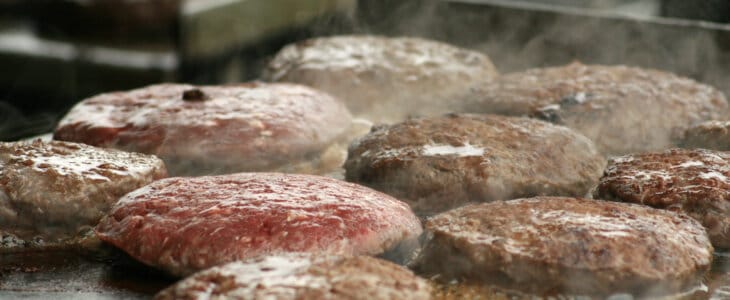E. coli food poisoning is a severe public health concern, often resulting from contaminated food products served at restaurants. Situations like the recent McDonald’s E. coli outbreak, highlight the risks consumers face when dining out. These incidents also raise an important question: Can you sue a restaurant if you fall ill from contaminated food? The answer is yes, but understanding how to hold restaurants accountable requires insight into food safety laws and legal liability. In this blog, our team at Deldar Injury Attorneys will explain everything you need to know about E. coli food poisoning.
What Is E. Coli Food Poisoning?
E. coli, or Escherichia coli, is a bacterium commonly found in the intestines of humans and animals. While most strains are harmless, some can cause severe illness. Symptoms of E. coli food poisoning include nausea, stomach cramps, diarrhea (often bloody), and, in severe cases, kidney failure. These symptoms typically develop within two to five days after consuming contaminated food. The bacteria can spread through undercooked meat, raw vegetables, or cross-contamination during food preparation.
Restaurants that serve large volumes of food daily have a heightened responsibility to prevent these risks through proper handling, storage, and preparation of ingredients. When they fail to meet these standards, patrons can suffer the consequences. In the recent McDonald’s outbreak, the Centers For Disease Control and Prevention (CDC) traced the cases of E. coli back to the slivered onions and beef patties from their famous Quarter Pounders.
Legal Grounds For Suing A Restaurant
Victims of E. coli food poisoning may have grounds to file a lawsuit under three primary legal avenues:
- Product Liability: Restaurants, like any business that sells food, must ensure their products are safe to consume. If a contaminated food item causes harm, the restaurant can be held liable under product liability laws. This applies regardless of whether the restaurant knew about the contamination.
- Negligence: Negligence occurs when a restaurant fails to meet reasonable safety standards, such as maintaining clean facilities, properly storing food, or cooking items to safe temperatures. Victims must demonstrate that the restaurant’s actions—or lack thereof—directly caused their illness.
- Breach of Implied Warranty: By serving food, restaurants implicitly guarantee that their products are safe for consumption. When contaminated food violates this guarantee, affected customers may pursue a claim for breach of implied warranty.
It’s important to note laws are different by state. The U.S. Department of Agriculture (USDA) doesn’t have federal jurisdiction over these cases. Instead, state trial courts are where individuals would argue their E. coli food poisoning case. This means you need a qualified attorney who understands the nuances of food poisoning law and the three important legal concepts above.
Challenges In Food Poisoning Lawsuits
While filing a lawsuit can provide justice and financial relief, food poisoning cases are not without challenges. For instance, proving causation—the link between the contaminated food and your illness—can be difficult without strong evidence. Additionally, restaurants often have robust legal teams to dispute claims. Despite these hurdles, legal action is crucial in holding restaurants accountable and encouraging better food safety practices.
A Colorado man who tested positive for E. coli after eating a Quarter Pounder, filed a lawsuit against McDonald’s, alleging negligence, product liability, and breach of implied warranty. His case shows the devastating impact of E. coli contamination, including severe gastrointestinal symptoms and costly medical care. Although McDonald’s removed Quarter Pounders from menus in affected regions and stopped using certain ingredients during the investigation, questions about supply chain oversight and food safety practices remain.
A skilled attorney will understand product liability, including establishing that the contaminated food item was defective and dangerous. They will also know how to build a strong negligence case, demonstrating that the restaurant failed to uphold reasonable safety standards in food preparation, handling, or storage. Also, your lawyer should be able to overcome the challenges of proving causation, gathering evidence, and negotiating with opposing parties, ultimately securing the compensation you deserve.
Closing Thoughts
E. coli food poisoning is not just an unfortunate accident—it’s often the result of negligence or insufficient safety measures. Restaurants have a duty to provide safe food; when they fail, victims have the right to hold them accountable. The McDonald’s E. coli outbreak highlights corporations’ challenges and responsibilities when public health is on the line. While McDonald’s responded quickly, people still got sick. Food safety protocols must be continually reviewed and enforced to protect consumers. For those affected, pursuing legal action is a way to address the harm caused and hold companies accountable.
If you or a loved one has suffered from E. coli food poisoning, don’t try to fight it alone. Contact Deldar Legal today for a free consultation. We’ll help you understand your rights and take the first step toward justice and recovery! Whether it’s a high-profile outbreak like McDonald’s or an isolated incident at a local establishment, we are committed to helping victims seek justice.



Leave a Reply